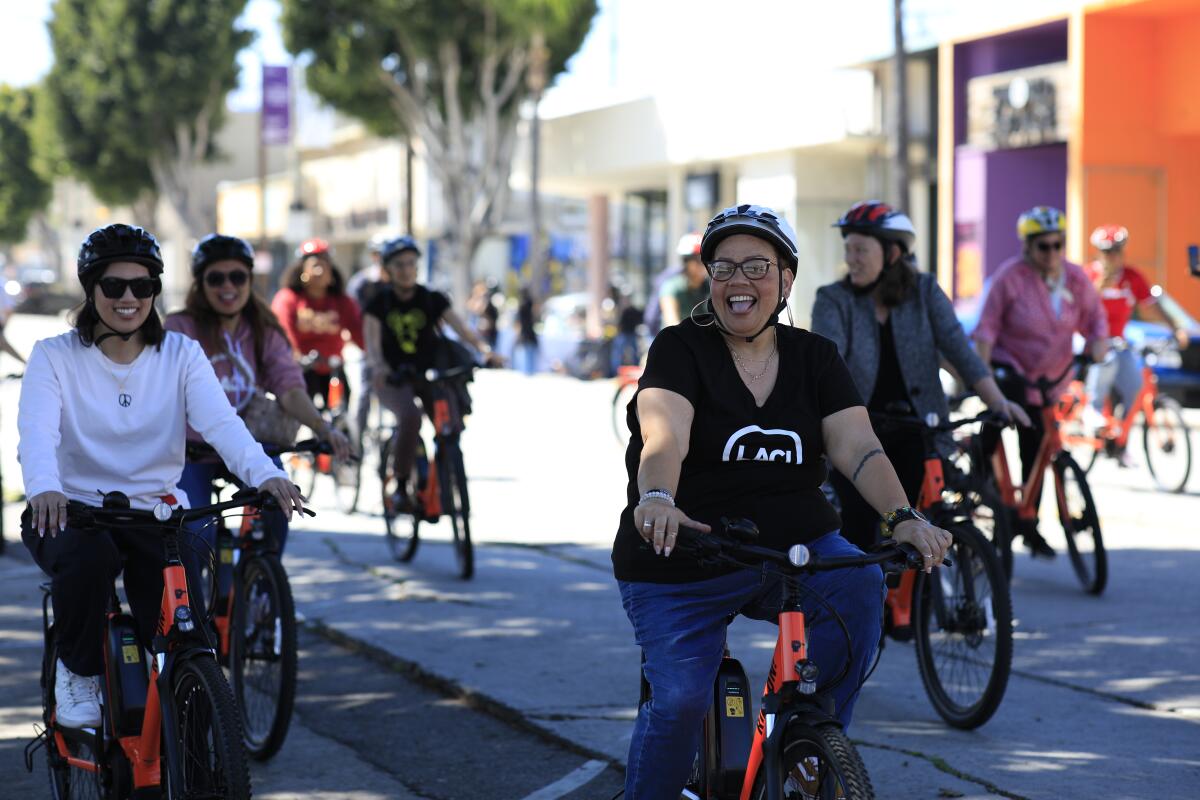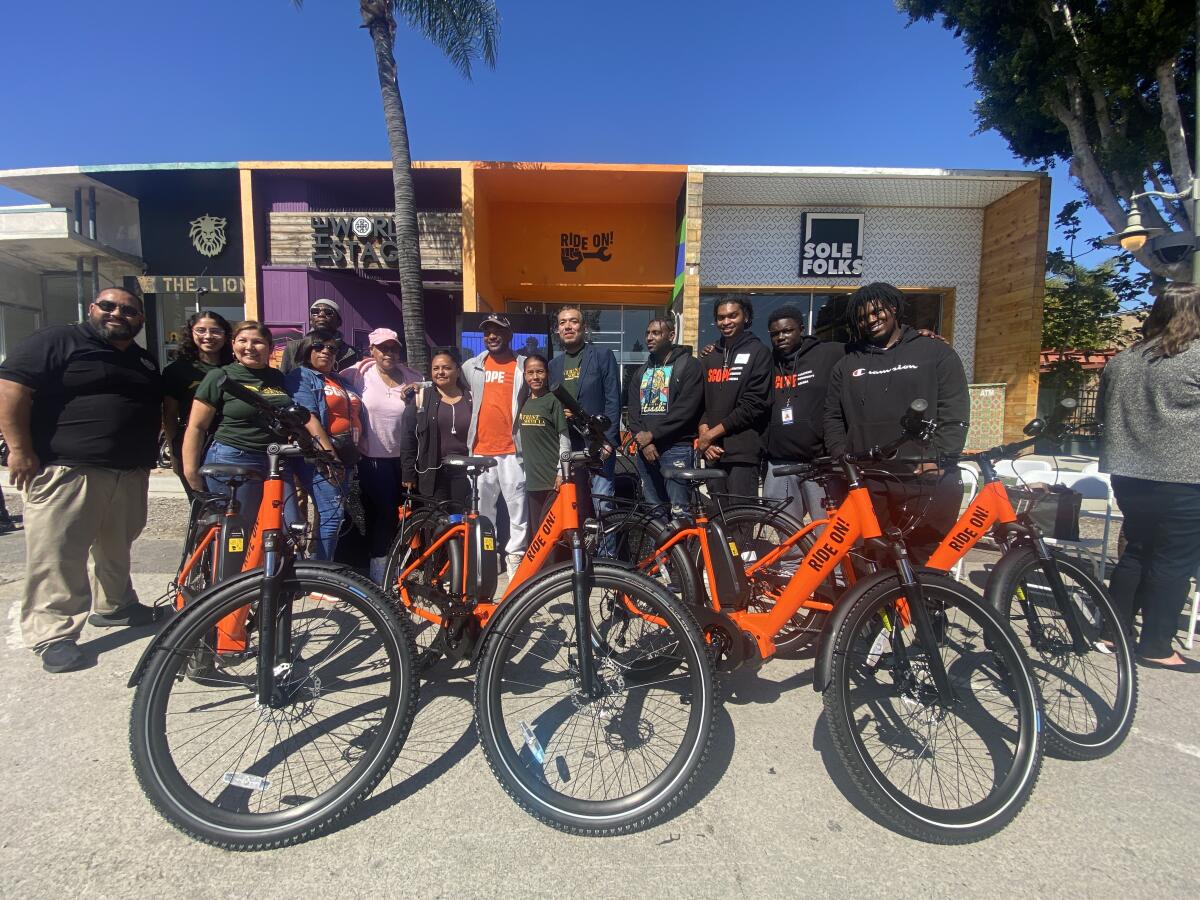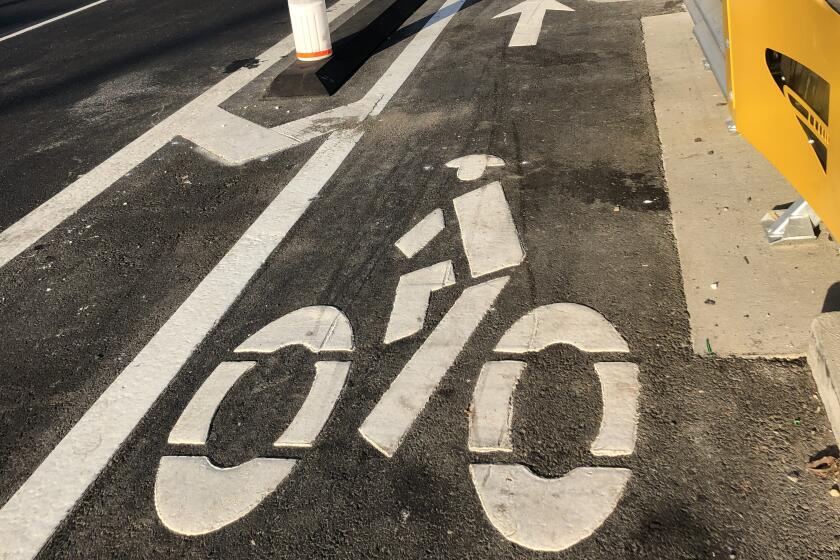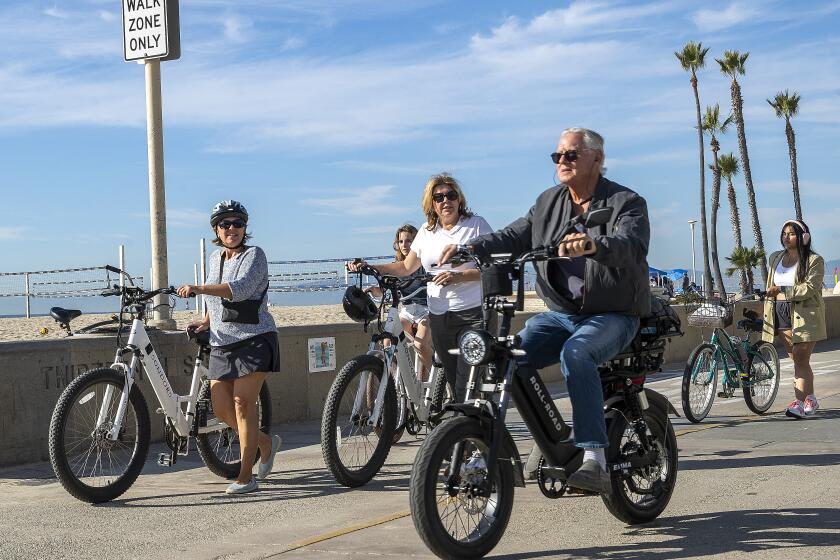A library for bike riders brings 250 e-bikes to South Los Angeles

South Los Angeles resident Channing Martinez recalls the days years ago when he couldn’t find enough change for the bus and was forced to hop on his bicycle.
Martinez, 36, co-director of the Labor Community Strategy Center, a think tank and advocacy organization for working-class families, rode roughly seven miles to El Camino College in Torrance from his home near Florence Avenue and Crenshaw Boulevard. He then transferred to Otis College of Art and Design in Westchester, which was a nine-mile trek.
“It was a heck of a ride that I’ve never forgotten,” Martinez said. “But in those days, I had no choice. I had to get to school.”
Today, Martinez’s community organization is one of several groups behind a plan to bring transportation access to South Los Angeles in the form of e-bikes.

The Los Angeles Cleantech Incubator and L.A.’s Department of Transportation, aided by nearly $3 million in funding from the California Air Resources Board, debuted their e-bike “lending library” Tuesday at Leimert Park’s Ride On! Bike Co-Op.
The library was christened the “South Central Power Up” and was bolstered by the delivery of 250 e-bikes that are immediately available to the public.
“We are very excited to launch this pilot, which will meet an essential need for the community, making checking out a clean, reliable e-bike as simple as getting a book at the library,” the incubator’s president and chief executive, Matt Petersen, said in a statement.
The bikes will be placed at seven locations throughout South Los Angeles and will be available for rental for up to one month.
Michelle Kinman, the incubator’s senior vice president of market transportation, said the 250-unit fleet comprises 215 commuter bikes, 29 cargo bikes and six adaptive bikes, including tricycles.
The service will be free for the next six months. The incubator and community partners, including People for Mobility Justice and Mercado La Paloma, are developing a fee for the future. The bikes, however, are expected to remain free for lower-income riders.
With safe, protected bike lanes and streets designed for humans, not only cars, we can have a future with an environmentally sound commuting option.
“E-bikes can support a wide range of personal transportation needs while reducing car trips, pollution, and overall congestion on streets,” Laura Rubio-Cornejo, general manager of the Department of Transportation, said in a statement. “The e-bike lending library will make this option affordable and accessible to residents of South L.A.”
The library is part of a two-year pilot program funded by $2.7 million from the state Air Resources Board. The money covered the purchase of the e-bikes and insurance along with maintenance and repairs, obligatory and complementary training for all participants, and additional support.
Kinman noted that one advantage of e-bikes over non-motorized bicycles is the less-strenuous, lower-impact physical activity. They are equipped with a motor to enhance and ease pedaling.
Tricycles are also available for those uncomfortable with two wheels, Kinman said.
After the initial two years of funding end, grants will be provided by the state’s Strategic Growth Council under its Transformative Climate Communities Program.
Proponents say e-bikes are safe when ridden responsibly. But unsafe riders in the South Bay have left officials and police grappling with how to keep everyone safe.
For Martinez, the e-bikes not only address mobility issues, but also enable people of color, particularly the Black community, to circumvent the historical ills of the bus and Metro system.
Martinez, a longtime Bus Riders Union member, said his group found that half of all arrests and citations made in Los Angeles transit over the last decade or so involved Black passengers.
“This is an opportunity to break away from those systems of criminalization and dehumanization,” said Martinez, a member of the Garifuna people and the queer community.
Martinez believes that as more people grow comfortable using the e-bikes, such a movement will force the city to implement more bike-accessibility projects.
“The infrastructure is not there yet in Los Angeles,” he said. “But if we continue to grow, things will have to change.”
More to Read
Sign up for Essential California
The most important California stories and recommendations in your inbox every morning.
You may occasionally receive promotional content from the Los Angeles Times.













